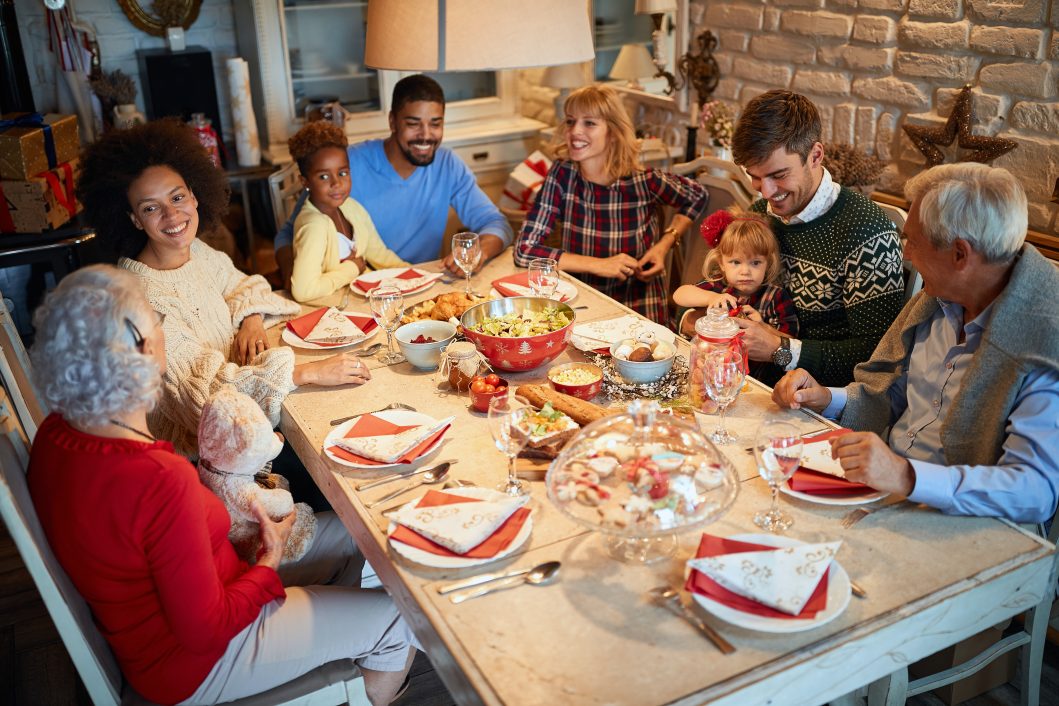A ritual celebrated across the world-the dinner table has always been a symbol for many things: the place where we nourish ourselves, where we come together to celebrate important milestones or share experiences and traditions. Family and friends gather over prepared meals to talk about their lives and reconnect with one another. It is a cherished symbol of family life and bonding in many cultures, especially during the holidays. For deaf and hard-of-hearing people, however, the dinner table often represents loneliness and inaccessibility.
In the US, 90% of deaf children are born to hearing parents, and 88% of the parents do not learn a signed language to communicate with their child, a decision that impacts deaf children for the rest of their lives. The Dinner Table Syndrome describes the phenomenon in which deaf people and hard of hearing are continuously left out of conversations. They watch their family or friends enjoy their conversations with each other while struggling to keep up, or worse, finding themselves unable to understand anything. If a conversation erupts into roaring laughter, the deaf person will lean to the closest person and ask what was so funny. Sometimes a sympathetic member would offer a summary using a few signs they know; a paraphrased story that does not have the same impact as the first time around. Often, they are told, “Oh, it was nothing” or “I’ll tell you later.” Except that later was quickly forgotten.
Although exclusion is not intentional, deaf and hard-of-hearing people feel excluded and become stressed out, lonely, angry, and feeling unimportant. The painful accumulation of being left out at the family table over a lifetime has caused many deaf and hard-of-hearing people to dread going home for the holidays. The coping mechanism for deaf people at events like this is to disengage. This can be done in a multitude of ways. Some silently stifle their frustration and wolf down a meal, only to ask to be excused early. Some may take their plate of food to their bedroom and eat alone. Some cope by reading books at the table; others draw pictures or scroll through their phone. Almost all zone out.

Dinner time with family should be a time when everyone can participate equally and openly. Deaf and hard-of-hearing children who are raised in homes with ASL have more ability to benefit from informal and incidental learning, something that many of us take for granted. ASL does not have to be exclusive and should be one of many languages used in the household. By participating in conversations utilizing multiple languages including sign language, deaf children (and people of all ages) accumulate more knowledge and information which leads to increased skills in areas such as problem-solving, higher vocabulary and literacy, and leadership.
By being a participant in the conversation, as opposed to a bystander, a deaf or hard-of-hearing individual feels more connected, becomes more aware of one’s cultural identity, and more confident. Moreover, children who sign tend to perform better academically, have stronger cognitive and spatial reasoning skills, report less depression as teens, and live more successful, independent lives. ASL can work beautifully with any language, especially the language already shared with the child: love.
Please keep these things in mind this holiday season as we gather around our dinner tables and try to include your deaf and hard-of-hearing family members and friends of all ages in the conversation, no matter how small the chatter may seem.
Share this Post




